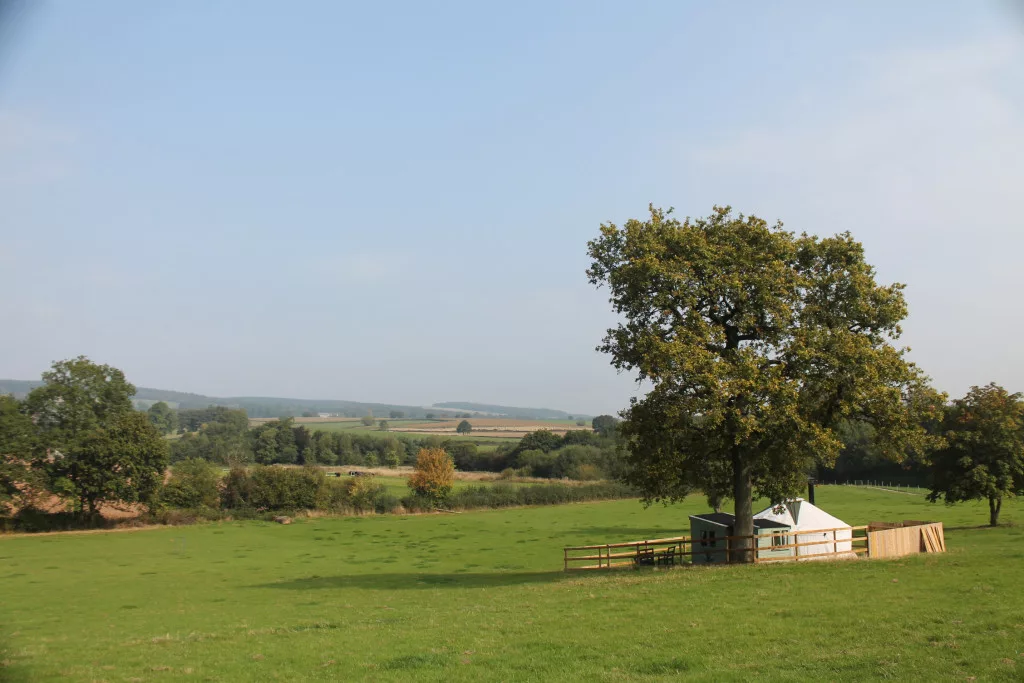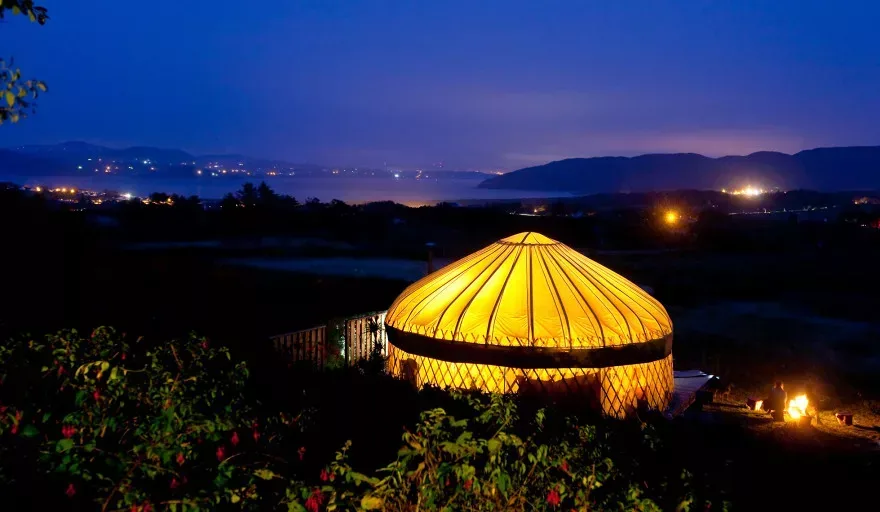The Outlook Team explores how Dan Yates started Pitchup, the UK’s first online search and booking platform for campsites.
Dan Yates has always enjoyed camping. Unsurprising really, considering he grew up on a holiday park managed by his parents.
“We had a big family and we all mucked in. I did everything from collecting the change in phone boxes to cleaning caravans and then, later, working in the office,” he explains.
At university, Dan became interested in website design. This was in the 90s, when the internet was still new and the first holiday websites (like lastminute.com) were just coming onto the market. He persuaded his parents to invest money into making a website for their holiday park – by 2000 it was at the top of Google rankings. The next step was to enable online booking; by 2002 the family were getting around 50 percent of their customers to book and pay online.
This was one of the first websites of its kind in the UK, and what gave Dan the idea for Pitchup – a search and booking website where customers have a choice of thousands of campsites across Europe.
“We sold the business a couple of years later, but the idea was always in the back of my mind,” he says.
THE EARLY DAYS
After university, Dan got a job as a strategy consultant working for lastminute.com, which was the lead travel brand in ecommerce at the time.
“It was a unique environment, where everyone was dedicated to the lastminute.com vision and worked extremely hard, but you were encouraged to experiment and be ‘internal entrepreneurs’. And that quite naturally led people to strike out on their own.
“I finally did that in 2009. I knew that if someone else set up a campsite search engine first, I was going to be very cross,” he explains.
By this time, filtered search engines and ecommerce sites were becoming increasingly popular.
“As banal as it sounds, I actually took inspiration from my search for a washing machine – there were all these websites where every possible feature had its own search function and you could hone down thousands of options to the three that perfectly fitted what you wanted, and then get the best price for them.
“I thought how great it would be to do the same with a campsite, which has so many more features. It might be counterintuitive, but there are hundreds of different features for every campsite to allow people to really customise the holiday they want, and that’s what we set out to do. Not only to build a search engine, which these days you’ll find on every website you visit, but to pull in all types of slightly quirky data sources.”
In 2009 the open data movement was taking off, and companies were being encouraged to release data archives they had gathered over the years. Dan managed to gather seven or eight data sources, including information on bathing water quality from the EU environment agency, which is now listed on Pitchup’s website.
“None of the holiday sites seemed to feature this data, which to me is a crucial consideration for a seaside holiday,” he says.
Pitchup became a one-stop shop where customers could not only choose accommodation based upon various amenities, but also on what was available in the surrounding location.
BUILDING UP PITCHUP
It soon became apparent that it was necessary to integrate a booking system into the website.
“The call to action on the website was a phone number to call, but quite often there was no answer. Or if we provided the email address of a campsite, it would take a week for them to respond to enquiries,” Dan says.
As it was too early for ATI integration to exist, Pitchup built its own online bookings system and gave campsites access to it, so they could update content descriptions, set pricings and receive payment.
Within the first couple of years, Pitchup had managed to get the UK’s top four holiday parks listed on their site, which gave them the muscle to sign up smaller operators.
These days, Pitchup offers more than 4,200 sites in 67 countries across the world, pursuing a multi-faceted strategy to keep attracting more campsites.
“We’ll go to trade shows throughout the year, occasionally we’ll visit them, email marketing, post, adverts on social media, and we have a team of sales people who will contact them on a regular basis,” Dan says.
“Because we’re the first company like this that are likely to have contacted them, it’s not a decision that they’ll make overnight. We’ve got people signing up that we’ve been talking to for five or six years. One of the biggest objections is that campsite owners like to speak to people on the phone and suss them out – they’re concerned about noisy parties and troublemakers. But then they see Pitchup in the press, and know people are turning more and more to the internet, and decide to give it a try.”
Dan believes that campsites stay with Pitchup thanks to the ‘no strings attached policy’ – campsites don’t have to sign a contract or shift a certain number of units.
STAYING SUSTAINABLE
In February 2019, Pitchup passed the one million bookings mark. It was also one of only 90 companies to appear in the FT1000 Fastest Growing Companies in Europe list for three years running (2018 to 2020).
Its success, Dan believes, is not only centred around the amount of choice offered to customers, but also the seamless instant booking process – Pitchup challenged itself to create a one-page booking system, with no unnecessary data fields to fill out. Added to that, domestic camping has become an increasingly popular choice in recent years.
“People are becoming increasingly interested in travelling sustainably,” Dan says. “Not only is the mode of transport people use to go camping environmentally friendly (they rarely use flights or ferries), but also the carbon footprint of the property you’re staying at is really low. People go camping for a simpler life – the activities they do while on holiday, like hiking, are low-impact too.”
He points out that campsites also help rural communities become economically sustainable.
“In many cases these businesses are supporting an entire community. A campsite has a low booking value, so has to bring in a lot of customers – far more than a hotel. And each of those customers is spending £20 in the pub, £25 in the fish and chip shop and going to the newsagent.”
However, like many other travel companies, Pitchup has been hit by the effects of the coronavirus.
“We’ve not been affected to the same level as some of the high-profile travel companies, simply because they have a much higher rate of international travel. But it’s still significant. This Saturday we had 50 percent less bookings than this time last year,” Dan says.
He points out that many of the sites listed on Pitchup would make good domestic holiday locations, as they’re located in rural areas with low population density, and it’s still possible to practice social distancing.
He also remains cautiously optimistic that holiday bookings will revive in time for the summer season.
“Our fervent hope is that there will be some last-minute bookings. Mobile booking was something we worked on very early, and that’s given us a great platform to shift a lot of bookings at very short notice.
“Although a lot of our clients are really hurting, we are ready to support them make the absolute most of when the bookings come back.”
In a society where the shift towards domestic tourism seems to have suddenly accelerated, we wish Pitchup the very best of luck.





















